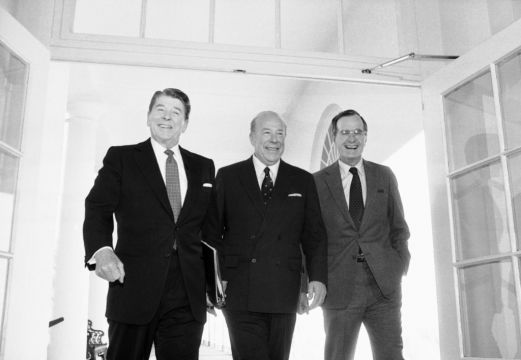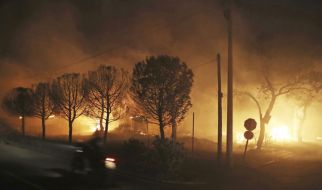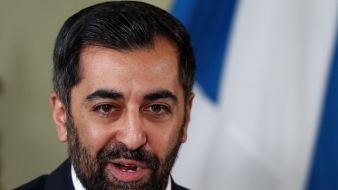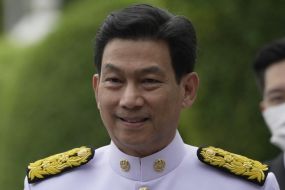President Ronald Reagan’s long-time US secretary of state, George P Shultz, who spent most of the 1980s trying to improve relations with the Soviet Union and forging a course for peace in the Middle East, has died. He was 100.
Mr Shultz died at his home on the campus of Stanford University, according to the Hoover Institution, a think tank where he was a distinguished fellow.
Mr Shultz held three major Cabinet posts in Republican administrations during a long career of public service.
He was labour secretary and treasury secretary under president Richard Nixon before spending more than six years as Mr Reagan’s secretary of state. He had been the oldest surviving former cabinet member of any administration.
Mr Shultz was the longest serving US secretary of state since the Second World War.

Over his lifetime, he succeeded in just about everything he touched, including academics, teaching, government service and the corporate world and was widely respected by his peers from both political parties.
After the October 1983 bombing of the marine barracks in Beirut that killed 241 soldiers, Mr Shultz worked tirelessly to end Lebanon’s brutal civil war in the 1980s. He spent countless hours of shuttle diplomacy between Middle East capitals trying to secure the withdrawal of Israeli forces there.
The experience led him to believe that stability in the region could only be assured with a settlement to the Israeli-Palestinian conflict, and he set about on an ambitious but ultimately unsuccessful mission to bring the parties to the negotiating table.
Although Mr Shultz fell short of his goal to put the Palestine Liberation Organisation and Israel on a course to a peace agreement, he shaped the path for future administrations’ Middle East efforts by legitimising the Palestinians as a people with valid aspirations and a valid stake in determining their future.
As the nation’s chief diplomat, Mr Shultz negotiated the first-ever treaty to reduce the size of the Soviet Union’s ground-based nuclear arsenals despite fierce objections from Soviet leader Mikhail Gorbachev to Mr Reagan’s Strategic Defence Initiative, or Star Wars.
The 1987 Intermediate Range Nuclear Forces Treaty was a historic attempt to begin to reverse the nuclear arms race, a goal he never abandoned in private life.

“Now that we know so much about these weapons and their power,” Mr Shultz said in an interview in 2008, “they’re almost weapons that we wouldn’t use, so I think we would be better off without them.”
Former secretary of state Henry Kissinger, reflecting in his memoirs on the “highly analytic, calm and unselfish Shultz”, paid Mr Shultz an exceptional compliment in his diary: “If I could choose one American to whom I would entrust the nation’s fate in a crisis, it would be George Shultz.”
Mr Shultz was born on December 13 1920, in New York City and raised in Englewood, New Jersey. He studied economics and public and international affairs at Princeton University, graduating in 1942. His affinity for Princeton prompted him to have the school’s mascot, a tiger, tattooed on his posterior, a fact confirmed to reporters decades later by his wife aboard a plane taking them to China.
At Mr Shultz’s 90th birthday party, his successor as secretary of state, James Baker, joked that he would do anything for Mr Shultz “except kiss the tiger”. After Princeton, Mr Shultz joined the Marine Corps and rose to the rank of captain as an artillery officer during the Second World War.
He earned a PhD in economics at MIT in 1949 and taught at MIT and at the University of Chicago, where he was dean of the business school.
Mr Shultz was president of the construction and engineering company Bechtel Group from 1975-1982 and taught part-time at Stanford University before joining the Reagan administration in 1982, replacing Alexander Haig, who resigned after frequent clashes with other members of the administration.

A rare public disagreement between Mr Reagan and Mr Shultz came in 1985 when the president ordered thousands of government employees with access to highly classified information to take a “lie detector” test as a way to plug leaks of information. Mr Shultz told reporters: “The minute in this government that I am not trusted is the day that I leave.” The administration soon backed off the demand.
A year later, Mr Shultz submitted to a government-wide drug test considered far more reliable.
A more serious disagreement was over the secret arms sales to Iran in 1985 in hopes of securing the release of American hostages held in Lebanon by Hezbollah militants. Although Mr Shultz objected, Mr Reagan went ahead with the deal and millions of dollars from Iran went to right-wing Contra guerrillas in Nicaragua. The ensuing Iran-Contra scandal swamped the administration, to Mr Shultz’s dismay.
After Mr Reagan left office, Mr Shultz returned to Bechtel. He retired from Bechtel’s board in 2006 and returned to Stanford and the Hoover Institution.
In 2000, he became an early supporter of the presidential candidacy of George W Bush, whose father had been vice president while Mr Shultz was secretary of state. Mr Schultz served as an informal adviser to the campaign.
Mr Shultz was married to Helena “Obie” O’Brien, an army nurse he met in the Pacific in the Second World War, and they had five children. After her death, in 1995, he married Charlotte Maillard, San Francisco’s protocol chief, in 1997.
He was awarded the nation’s highest civilian honour, the Presidential Medal of Freedom, in 1989.







